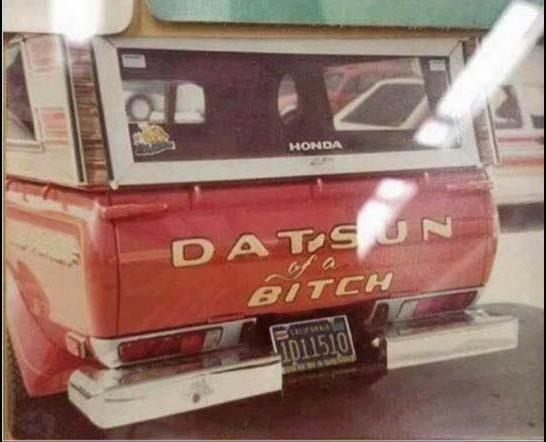
|
A 2015 Nissan Tsuru, made in Mexico, goes head on with a 2016 Nissan Versa made in the US.
Is it any wonder why Nissan will stop making the Mexican Tsuru next May?
“They don’t make ’em like they used to.” Chances are, you’ve heard that before. And thank goodness they don’t.
Case in point, the Nissan Tsuru – a common sight in Mexico as taxicabs, the Tsuru is essentially a ‘new’ 1992 Sentra. It’s cheap, simple, and as the U.S. Insurance Institute for Highway Safety shows, has the ability to turn into a four-wheeled accordion in the event of a crash.
The IIHS collaborated with the Latin and Global NCAP groups to show how a Mexican market-spec 2015 Nissan Tsuru would fare against a U.S.-spec 2016 Nissan Versa sedan, all in a bid to not only highlight the differences between U.S. and Mexican automotive safety requirements, but to also get cars with zero-star crash test ratings – like the Tsuru – off Mexican roads.
To say the least, the results are alarming. Both cars were travelling at 40 mph, or just over 64 km/h. While the Versa‘s airbags and structure do a formidable job in keeping the dummy relatively unscathed, we definitely can’t say the same about the Tsuru. Let’s just say, after seeing how the Tsuru’s A-pillar deforms so quickly, a steering wheel flying off is the last thing we’d worry about.
According to the NCAP, more than 4,000 fatalities in Mexico were linked to Nissan Tsuru crashes between 2007 and 2012.
Does a day ever go by that angry Muslims somewhere aren’t demanding apologies?
A new Nissan commercial airing in Israel has offended the oil-rich Arabs. The commercial shows a group of Arab sheikhs enraged at the sight of a Nissan car known for its fuel efficiency. One man pounds his fists on the car and is then held back by his companions as he shouts at it, “You’ve ruined my house!” (Colloquial Arabic for “You’ve put me out of business!”).
At the end of the commercial, the voice-over says, “It’s clear the oil companies won’t like you.”
The Nissan advertisement is brilliant and perfect for the Western market and all those fed up with the spectacle of trillions of dollars flowing to some of the most undeserving, hostile and greedy people in the world.
Gulf states may boycott the Nissan Motor Company as a result of an Israeli TV commercial that depicts Saudis angered by a fuel-efficient car, a Saudi official has said.
The new campaign by Renault-Nissan caused an uproar in the Gulf when it showed a group of Saudi oil barons screaming and attacking the Renault-Nissan vehicle.
“It’s my opinion that Nissan made a huge error by igniting these [racist] instincts,” official Hani al-Wafa told MBC TV, a Saudi-run station headquartered in Dubai, United Arab Emirates. “We need to apply punishments… against these things. In order for Nissan to keep its interests in the region, it must apologize.”
Israeli advertising and marketing agency Inbar Merhav Shaked, which developed the Renault-Nissan campaign, declined to comment.
In January, Israel partnered with Project Better Place, a company that aims to reduce petroleum dependency through the use of electric cars.
Through the government initiative, Israel hopes to mass-market electric vehicles by 2011. Denmark is also investing in electric cars at a national level.
Project Better Place partnered with Renault-Nissan to provide the electric vehicles featured in the new commercial.
“It’s a humorous campaign that was loved by both the Jewish and Arab worlds,” Daniella Ribenbach, the spokeswoman for Nissan in Israel, told The Jerusalem Post on Wednesday. She declined to make any further comments on the matter.
Hadar Goldman, co-owner of the Zarmon Goldman advertising agency in Tel Aviv, said he hoped Saudis would tolerate humorous and exaggerated commercials.
“If we have a sense of humor, I expect them to have one as well,” he said.
Nissan’s electric vehicle, introduced on Wednesday, is set to go on the market in Japan and the United States in 2010, and globally by 2012.
The car was designed to provide more power than hybrid models, and emits zero emissions.
During test runs, the car was quiet and produced no engine noise – a trademark of electric vehicles. Details such as cruising range have yet to be determined, Nissan officials said.
Having fallen behind rivals Toyota Motor Corp. and Honda Motor Co. in hybrids, Nissan has made the electric vehicle the pillar of its green strategy.
The Saudis are shown leaving a hotel and encountering the new, fuel-efficient vehicle. One man pounds his fists on the car and is then held back by his companions as he shouts at it, “Hawks should peck at you day and night.”
At the end of the commercial, the voice-over says, “It’s clear the oil companies won’t like you.”